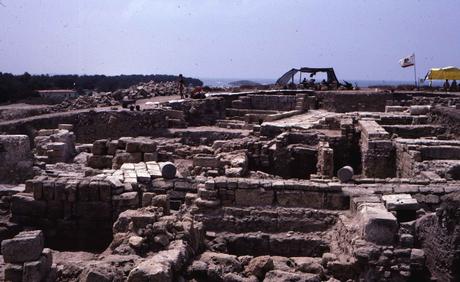An article by Matti Friedman in this month’s Smithsonian got me to thinking about the Bible’s iconic status again. Titled “An Archaeological Dig Reignites the Debate Over the Old Testament’s Historical Accuracy,” the story’s about a decidedly non-biblical trope—King Solomon’s mines. That phrase, as the article makes clear, comes from the title of H. Rider Haggard’s nineteenth-century novel, not the Bible. As the piece demonstrates, however, many people suppose it to be biblical. Our society isn’t as biblically literate as it is biblically motivated, so the question of proof keeps coming up. It’s almost as if historical veracity is far more important than any spiritual truths the Good Book may be attempting to establish. Those who need the assurance of history (those we tend to think of as literalists) often miss the message in the quest for certainty.

Reading the article makes it clear that archaeologists have discovered good evidence for copper mining in the Arabah. This is in no way surprising. Ancient people of biblical times smelted copper and used it to make bronze. At issue here is the historicity of Solomon’s opulent kingdom, evidence for which we lack. Archaeologists have been digging for well over a century now, and the magnificence of David and Solomon doesn’t really show up in the archaeological record. Of course the issue is politicized because land claims are involved. American literalists tend to support Israel because of its role in “end times prophecy.” Eager to be done with this wicked old world, they require the assurance of history. Interestingly enough, that doesn’t seem to have bothered Jesus of Nazareth very much.
Long ago biblical scholars realized that the biblical view of history isn’t the same as what we might term scientific history. Any history, as those who specialize in it know, isn’t “what really happened.” Objectivity is impossible. Histories are versions of what likely might’ve happened, based on the sources consulted. At the very least there will be the perspective of the other side. There are facts, of course. The Holocaust, for example, did happen. The fascist government of Germany orchestrated and implemented it. When trying to reconstruct that history, however, differences of opinion often arise. That’s the nature of history. Unfortunately we’ve seen the rise of these self-same biblicists denying the known facts of more recent history in order to make themselves appear more righteous. They want to shield themselves from the genocide of American Indians and the evils of slavery. Yet they are inspired by such headlines that hint that the Bible might have a tint of historical accuracy after all. It’s all there in the passage about King Solomon’s mines.
